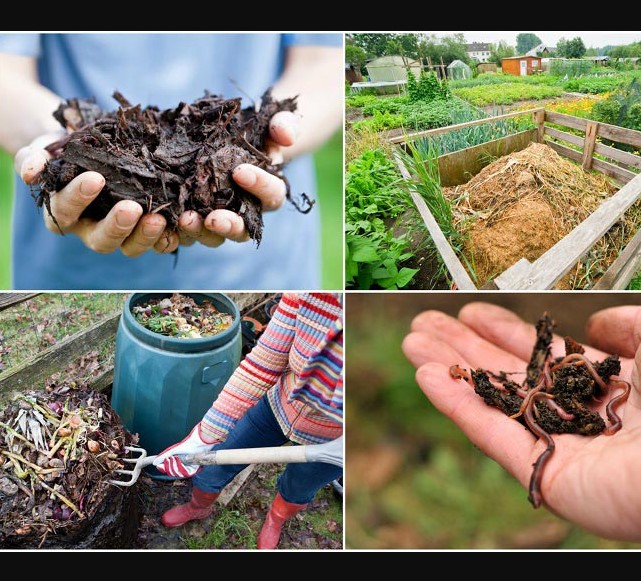Composting 101 is a simple yet incredibly effective way to reduce waste, enrich soil, and contribute to a healthier environment. By converting kitchen scraps and yard waste into nutrient-rich compost, you can create a sustainable cycle that benefits your garden and the planet.
Understanding Composting
Before discussing the practical aspects of composting 101, it’s essential to understand the fundamentals of the process. Composting 101 is a natural decomposition process in which organic materials break down into a nutrient-rich soil amendment known as compost. This process is facilitated by microorganisms such as bacteria, fungi, and worms, which thrive in oxygen, moisture, and the right balance of carbon and nitrogen-rich materials.
Benefits of Composting
The benefits of composting 101 extend far beyond reducing waste. Compost is a valuable soil conditioner that improves soil structure, moisture retention, and nutrient content. Additionally, compost helps suppress plant diseases and pests while promoting healthy root development. Incorporating compost into your garden can enhance plant growth, increase crop yields, and foster biodiversity.
Getting Started with Composting
Now that you understand the importance of composting, let’s explore how to start. The first step is to select a suitable location for your compost pile or bin. Choose a well-drained area with good airflow and access to sunlight. Next, gather your composting 101 materials, including brown materials high in carbon (such as dried leaves, straw, and newspaper) and green materials high in nitrogen (such as fruit and vegetable scraps, grass clippings, and coffee grounds).
Building Your Compost Pile
With your materials assembled, it’s time to build your compost pile. Start by layering brown and green materials in alternating layers, ensuring each layer is adequately moistened. Aim for a ratio of roughly three parts brown materials to 1 part green materials to achieve the ideal balance of carbon and nitrogen. As you add materials to your compost pile, periodically turn and aerate it to promote decomposition and prevent odors.
Maintaining Your Compost
Maintaining your compost pile is essential to ensure its success. Regularly monitor the moisture level of your compost pile, aiming for a consistency similar to a wrung-out sponge. If your compost pile becomes too dry, water it gently to rehydrate the materials. Conversely, add more dry brown materials to absorb excess moisture if it becomes too wet. Additionally, continue to turn and aerate your compost pile every few weeks to encourage decomposition and prevent anaerobic conditions.
Troubleshooting Common Issues
While composting 101 is a relatively straightforward process, it is challenging. Common issues such as unpleasant odors, slow decomposition, and pest infestations can arise. Fortunately, many of these issues can be addressed with simple solutions. For example, adding more brown materials can help neutralize odors, while turning your compost pile more frequently can accelerate decomposition. By troubleshooting these issues proactively, you can maintain a healthy and productive compost pile.
Harvesting and Using Your Compost
Once your compost has reached a dark, crumbly texture and has an earthy aroma, it’s ready to be harvested and used in your garden. Use a shovel or pitchfork to remove the finished compost from the bottom of your pile, being careful to avoid disturbing any active decomposition. Spread the compost evenly over your garden beds or mix it into potting soil to provide your plants with a nutrient-rich boost. With regular applications of compost, you’ll see improvements in soil fertility, plant health, and overall garden productivity.
Conclusion:
In conclusion, composting 101 is a simple and rewarding practice anyone can incorporate into their daily lives. By diverting organic waste from landfills and harnessing the power of decomposition, you can create a valuable resource that enriches soil, supports plant growth, and fosters a more sustainable future. Whether you’re a seasoned gardener or a novice enthusiast, I encourage you to embark on your composting 101 journey today and experience its countless benefits.

